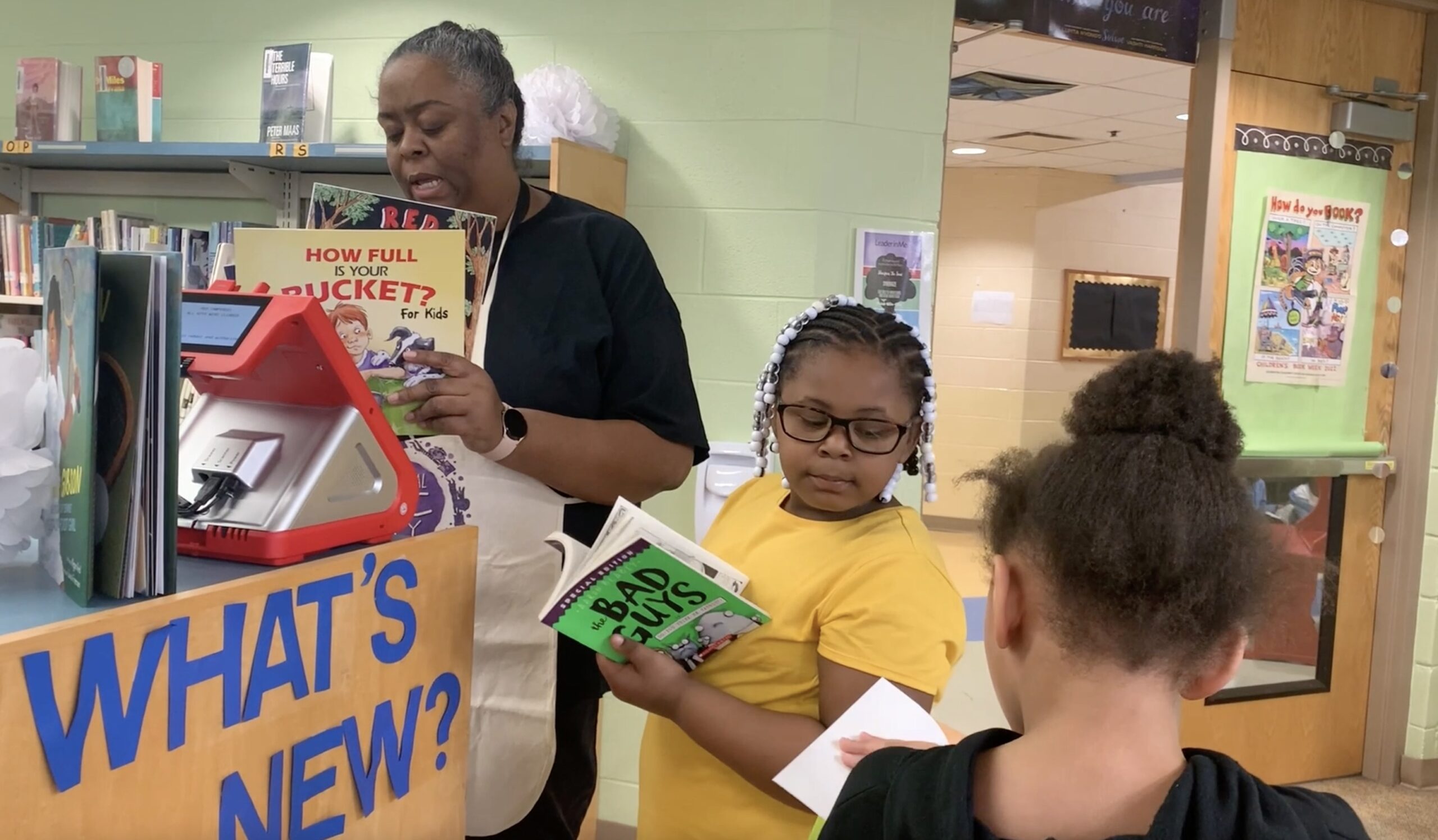Lifestyle
National Campaign Delivers 10 Free Books Yearly to Children

A nationwide initiative aims to improve literacy among children in low-income neighborhoods by providing each child with ten free books annually. The initiative, known as the If You Give A Child A Book campaign, seeks to build home libraries, thereby closing the educational gap faced by students who often lack access to reading materials outside of school.
In Lincoln Heights, Ohio, first-grade teacher Nicolette Jemison emphasizes the importance of early literacy skills. Her students are currently grasping the basics of reading, such as letter recognition and writing. As they progress through their education, this foundational knowledge will transition from learning to read to reading to learn, a crucial shift that typically occurs between the third and fourth grades. Dawn Bailey, the principal of Lincoln Heights Elementary School, underscores the significance of reading, stating, “Reading is the key to everything. They can’t be successful on the test in science or social studies if they can’t read.”
For many Title I schools, which serve a high percentage of low-income families, access to books at home is often a luxury. Sarah Wartman, a kindergarten teacher at Lincoln Elementary School in Dayton, Kentucky, notes that many of her students do not have books at home. “We don’t have a local library in town,” she explains. “So having that opportunity to get books two or three times a year makes a phenomenal difference for our population.”
The Scripps Howard Fund, a public charity associated with the E.W. Scripps Company, facilitates the If You Give A Child A Book campaign by organizing Scholastic book fairs at approximately 100 partner schools, allowing children to choose books for free. The goal is to ensure that every child receives ten books each year. According to Meredith Delaney, president and CEO of the Scripps Howard Fund, “You’re planting a seed in a child where they can learn about new experiences. They can learn kindness and empathy, and they can travel to magical places. It is an opportunity that just unlocks potential.”
The enthusiasm surrounding book fair days is palpable. Principal Bailey reflects on the excitement generated among students, comparing it to the thrill of choosing a car without financial constraints. “It’s kind of like that,” she adds. The campaign emphasizes choice while guiding students toward appropriate reading levels to ensure they do not feel excluded or discouraged from reading.
Reading proficiency has suffered in the wake of the COVID-19 pandemic, with nationwide scores declining each year. The 2024 National Assessment of Educational Progress reveals that only 31% of fourth graders are reading at or above the proficient level, while 40% are reading below basic levels.
Since its inception in 2016, the If You Give A Child A Book campaign has distributed over 1.5 million books, with aspirations to reach the 2 million mark ahead of its tenth anniversary next year. With just $12, donors can provide two free books, and all contributions are directed toward ensuring children receive essential reading materials. Interested individuals can support the cause by visiting ifyougiveabook.com.
The Scripps Howard Fund continues to champion literacy, addressing the critical need for accessible reading materials and fostering a love of reading among children.
-

 Technology5 months ago
Technology5 months agoDiscover the Top 10 Calorie Counting Apps of 2025
-

 Health2 months ago
Health2 months agoBella Hadid Shares Health Update After Treatment for Lyme Disease
-

 Health3 months ago
Health3 months agoErin Bates Shares Recovery Update Following Sepsis Complications
-

 Technology4 months ago
Technology4 months agoDiscover How to Reverse Image Search Using ChatGPT Effortlessly
-

 Technology1 month ago
Technology1 month agoDiscover 2025’s Top GPUs for Exceptional 4K Gaming Performance
-

 Technology2 months ago
Technology2 months agoElectric Moto Influencer Surronster Arrested in Tijuana
-

 Technology5 months ago
Technology5 months agoMeta Initiates $60B AI Data Center Expansion, Starting in Ohio
-

 Technology5 months ago
Technology5 months agoRecovering a Suspended TikTok Account: A Step-by-Step Guide
-

 Health4 months ago
Health4 months agoTested: Rab Firewall Mountain Jacket Survives Harsh Conditions
-

 Lifestyle5 months ago
Lifestyle5 months agoBelton Family Reunites After Daughter Survives Hill Country Floods
-

 Technology4 months ago
Technology4 months agoHarmonic Launches AI Chatbot App to Transform Mathematical Reasoning
-

 Technology3 months ago
Technology3 months agoUncovering the Top Five Most Challenging Motorcycles to Ride





















